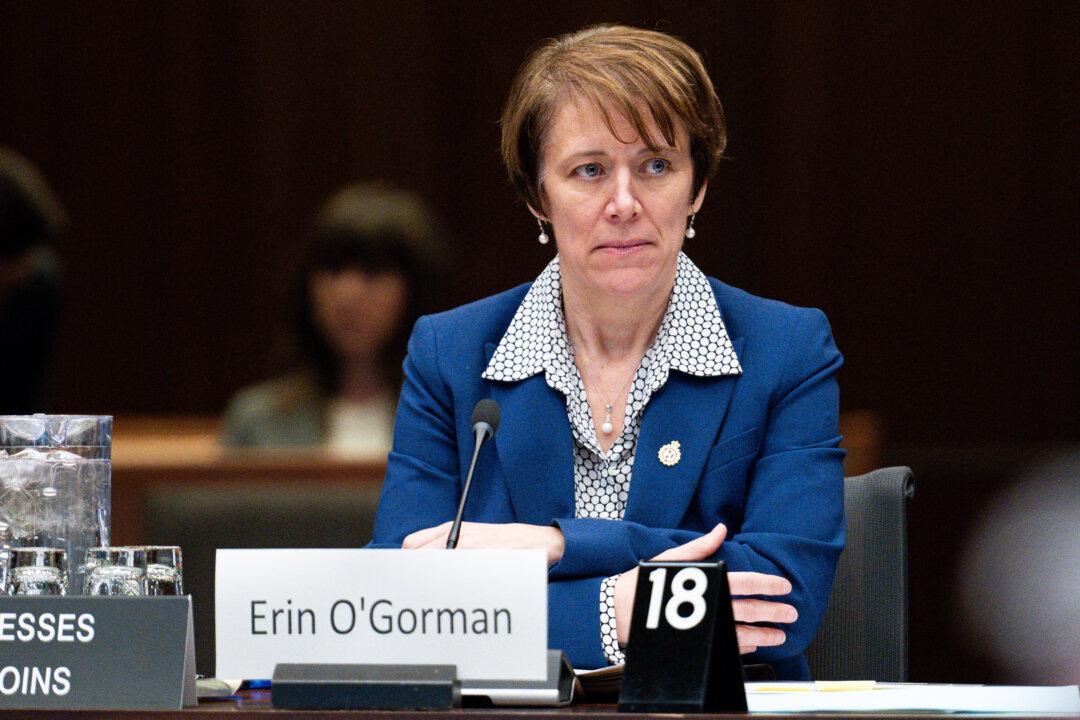The border agency chief said she learned from media that her officers are frustrated about not being able to react when they notice individuals crossing the border illegally near a port of entry due to a jurisdictional issue.
“That has never been raised to my attention,” Erin O'Gorman, president of the Canada Border Services Agency (CBSA), said while appearing before the House of Commons public safety committee on Dec. 3.





